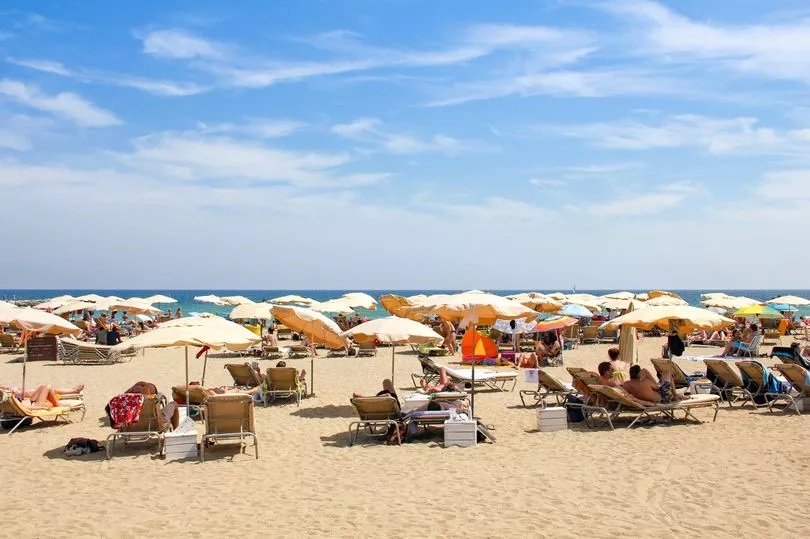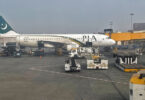Lottie Gibbons
Travel to some popular holiday hotspots hasn’t been plain sailing for everyone so far this summer. A heatwave that hit much of Europe has caused problems, notably on the Greek islands of Rhodes and Corfu, where wildfires have seen Brits’ breaks disrupted.
Rhodes has been particularly badly affected, with locals and holidaymakers having to flee fires across the island. It has led to many having to cut their holidays short or cancel them altogether, reports the Liverpool ECHO.
The UK’s Foreign Office has now issued its latest travel advice for Greece, as well as other much-loved destinations including Spain and Turkey.
Spain
The UK Foreign Office has updated information on providing personal ID when renting a vehicle, water safety, altitude sickness, and what to do in the event of a forest fire.
Personal ID
Hotels, tourist accommodation and car rental companies have a legal duty to register passport details of tourists when they check in or collect a vehicle.
Water safety
Every year, people drown in the sea and in swimming pools in Spain. Take care when swimming in the sea. Some beaches, especially around Spanish islands, may have strong undercurrents.
Avoid swimming at beaches that are close to rivers. Do not dive into unknown water as hidden rocks or shallow depths can cause serious injury or death.
Many beaches have a flag system. Make sure you understand the system and follow any warnings.
Altitude sickness
Altitude sickness may be a risk in some of the higher mountain ranges in Spain, particularly in the regions of Granada, Huesca and Tenerife.
Forest fires
Forest fires occur frequently in Spain (including in the Spanish islands) during the summer months, when temperatures regularly reach over 40C. For information on forest fire risk visit the Spanish Meteorological Office (AEMET).
Greece
Extreme temperatures are affecting many areas of Greece. There are active wildfires across Greece, including in populated areas on the mainland and a number of islands.
If you are due to travel to an area that might be affected by wildfires, contact your travel operator or accommodation provider before you travel to check that it is not currently impacted. Make sure you have appropriate insurance.
The Foreign Office said: “Wildfires are highly dangerous and unpredictable. The situation can change quickly. Follow “112 Greece” on Twitter for official updates.
“Be cautious if you are in or near an area affected by wildfires. You should follow the guidance of the emergency services, call the Greek Emergency Services on 112 if you are in immediate danger, contact your airline or travel operator who can assist you with return travel to the UK.
“Enable the “Emergency Alerts” option to receive the Greek government’s emergency alerts. For iPhones go to Settings > Notification. Enable the “Emergency Alerts” option at the bottom.
“Android 11 and higher go to Settings > Notifications > Advanced Settings > Wireless Emergency Alerts
“Samsung Devices go to Settings > Apps > Messages > Notifications > Emergency Notifications. Enable the “Emergency Alerts” option read the Greek Government’s protection guidelines in the event of a forest fire.”
They added: “Register via the Greek government’s Emergency Communication Service (in Greek). The Greek government has set up a Crisis Management Unit to facilitate the evacuation of foreign visitors from Rhodes due to the ongoing forest fires. Contact them for advice on +30 210 368 1730, +30 210 368 1259 and +30 210 368 1350.”
Turkey
New information about cases of salmonella and medical tourism has been issued by the Foreign Office.
Medical tourism
Medical tourism is when people travel to have medical, surgical or dental treatment abroad. The standard of medical facilities and available treatments can vary widely globally.
It is believed 25 British nationals have died in Turkey since January 2019 following medical procedures. There were reports of an outbreak of botulism linked to weight loss treatments performed in Istanbul and Izmir in February 2023.
Salmonella
UKHSA has detected an increase in gastrointestinal infections in travellers returning from Turkey, with over 200 cases of Salmonella detected since the beginning of 2023.
Courtesy: walesonline







